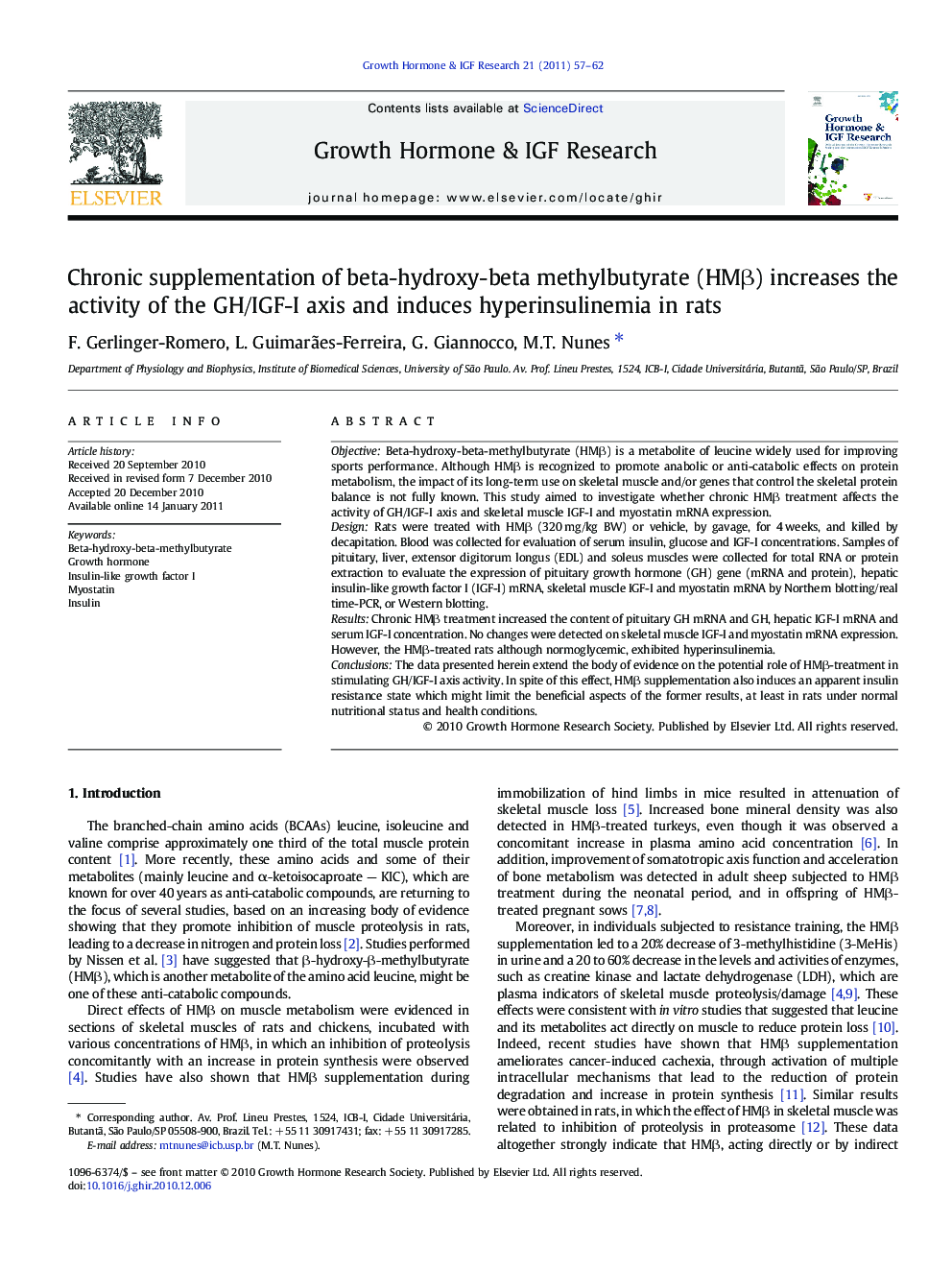| Article ID | Journal | Published Year | Pages | File Type |
|---|---|---|---|---|
| 2802905 | Growth Hormone & IGF Research | 2011 | 6 Pages |
ObjectiveBeta-hydroxy-beta-methylbutyrate (HMβ) is a metabolite of leucine widely used for improving sports performance. Although HMβ is recognized to promote anabolic or anti-catabolic effects on protein metabolism, the impact of its long-term use on skeletal muscle and/or genes that control the skeletal protein balance is not fully known. This study aimed to investigate whether chronic HMβ treatment affects the activity of GH/IGF-I axis and skeletal muscle IGF-I and myostatin mRNA expression.DesignRats were treated with HMβ (320 mg/kg BW) or vehicle, by gavage, for 4 weeks, and killed by decapitation. Blood was collected for evaluation of serum insulin, glucose and IGF-I concentrations. Samples of pituitary, liver, extensor digitorum longus (EDL) and soleus muscles were collected for total RNA or protein extraction to evaluate the expression of pituitary growth hormone (GH) gene (mRNA and protein), hepatic insulin-like growth factor I (IGF-I) mRNA, skeletal muscle IGF-I and myostatin mRNA by Northern blotting/real time-PCR, or Western blotting.ResultsChronic HMβ treatment increased the content of pituitary GH mRNA and GH, hepatic IGF-I mRNA and serum IGF-I concentration. No changes were detected on skeletal muscle IGF-I and myostatin mRNA expression. However, the HMβ-treated rats although normoglycemic, exhibited hyperinsulinemia.ConclusionsThe data presented herein extend the body of evidence on the potential role of HMβ-treatment in stimulating GH/IGF-I axis activity. In spite of this effect, HMβ supplementation also induces an apparent insulin resistance state which might limit the beneficial aspects of the former results, at least in rats under normal nutritional status and health conditions.
